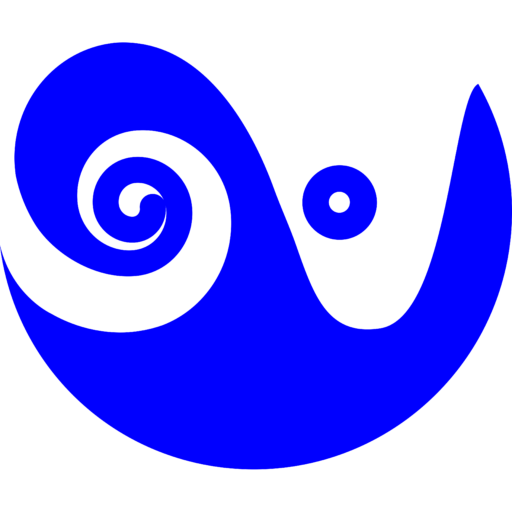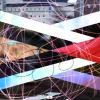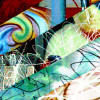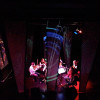Towards the end of the summer, I was asked if I’d be interested in working on a project with composer Tom Raybould and Sinfonia Cymru to produce a series of performances aimed at encouraging a new audience to experience classical music, and exploring what a ‘classical’ music concert can be.
We set about putting together the first show in September with a feeling of much trepidation. It wasn’t fully clear from the outset how we would achieve the goal of a ‘new’ classical experience and for that reason, we possibly ended up trying to throw everything at it in order to see what would stick. We knew the raw ingredients: electronic music, Classical music, String instruments, video projections and some sort of ‘interactivity’.
We had a shortlist of musical pieces to work with, and I set about filing some macro footage of ‘nature’ themes – taking on the elements as a starting point of concept, which I planned to use a starting point for live visuals – each piece corresponding to an element. Tom Set about creating rather foreboding, bass heavy interstitial electronic soundscapes to be played in between classical pieces along with a reworking of Samuel Barber’s Adagio for Strings – you’ll know it if you hear it. A favorite of ‘remixes’ made famous by the likes of William Orbit, it is a piece most people recognize, so it was felt to be an easy win.
That first evening didn’t quite set alight the world of music, but it was clear what didn’t work and which elements the audience reacted to. It was possibly a case of not enough ‘collaboration’ between all parties, and too many ideas in the mix. It was clear if the following performance in November was to succeed, something needed to change. So we changed pretty much everything.
Tom Set about actively remixing a trimmed down selection of classical pieces, with a more contemporary flavour, turning them into electronica driven beats. These were then scored for the string musicians into new arrangements. Rough Collie were brought in with a brief to create seven animations spanning each section to follow a geometric path. visually, we were imagining simple beginnings – a dot or lines to become more lines and develop form, gradually becoming more complex and beautiful. The first show had us projecting down onto the musicans and also onto two standard large screens. This time, eight ‘shards’ – tall, thin screens purpose built for a previous project were put in the mix. One screen per string musican and two left over for the electronic. The video needed to feel a part of the music and ‘react’ to the musicians, so we used contact microphones on the instruments to produce a midi signal, which then corresponded to a video file which I could affect with the ambient sound. John Collingswood agreed to apply some Isadora magic by creating generative graphics connected to Tom’s midi signals, this would help demonstrate a slightly different feel of imagery between the electronic and the orchestral, whilst definitely coming from a shared common ground. Tying it all together would be Katy’s lighting skills (as well as her superhuman project management skills).
The Second UnButtoned took place on the 13th November and getting the shards in place, successfully projection mapping onto them as well as getting the piezo mics to convincingly work in-situ felt it all coming into place. This would be the show we had been wanting to create from the beginning. The fact that the response from the audience was overwhelmingly positive and that the team working on it had big smiles across their faces on the last note was even better.
There are bits to refine, add and change, but in essence the December show will follow the same format. If all goes well, there is talk of possibly touring the show next year. Fingers crossed.
UnButtoned will be at Chapter on the 13th December.




